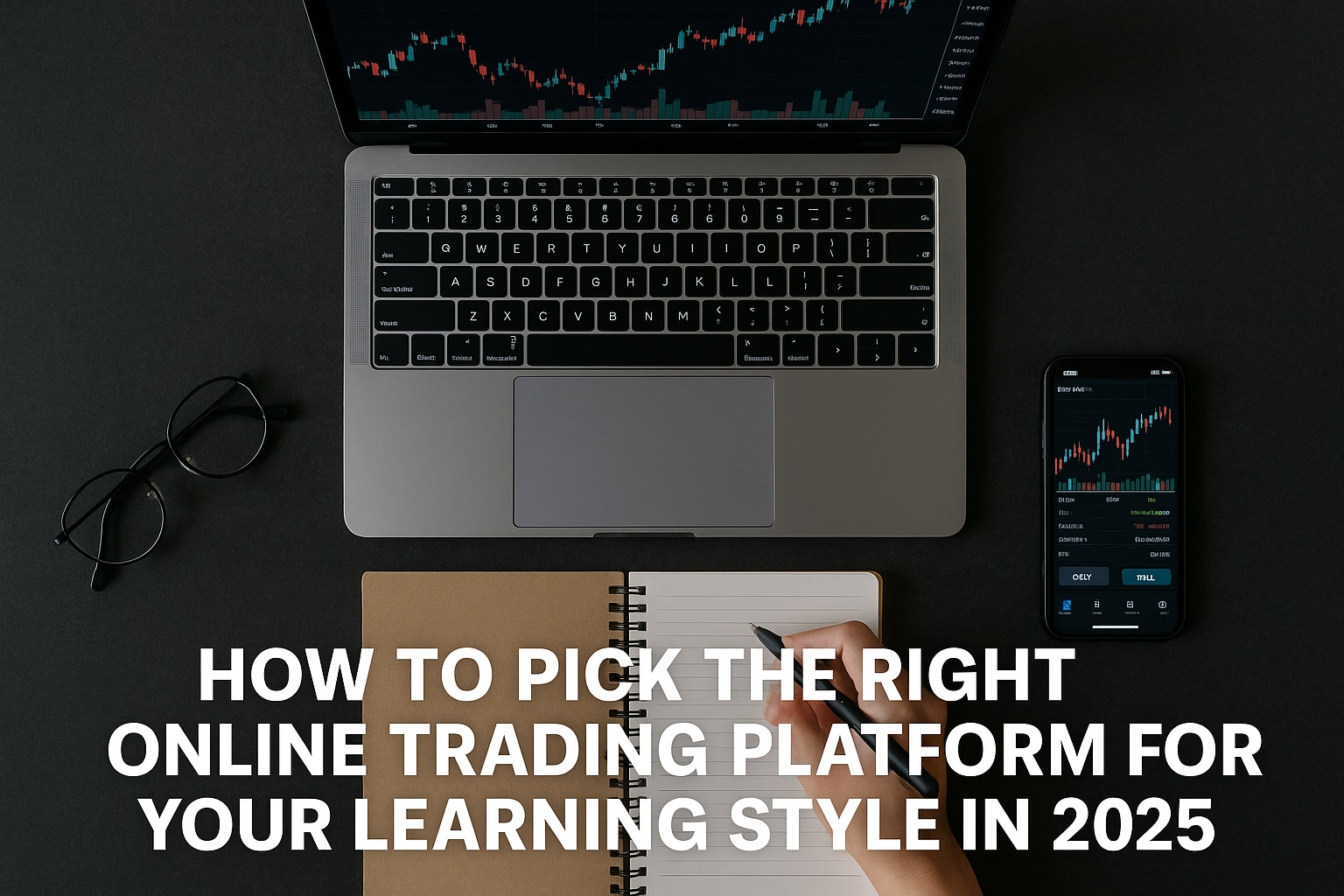
Choosing the right online trading platform in 2025 isn’t just about finding the one with the lowest commissions or the most market access. For serious traders, the optimal platform is one that complements their unique learning style, supports actionable technical analysis, and provides access to a community of disciplined, like-minded professionals. As the market evolves and user preferences shift, understanding the interplay between platform features, educational resources, and community engagement is critical for those who want to outperform. Let’s break down the key considerations and insights to help you select the best online trading platform tailored to your learning approach and trading goals.
Every trader absorbs information differently. Recognizing your personal learning style is the first step toward selecting a platform that will accelerate your development and edge. Some traders thrive with hands-on experience, executing trades and learning from real-time feedback. Others prefer structured, in-depth analysis or guided mentorship from experts.
There are three primary learning styles to consider:
Understanding your learning style can help you filter platforms that not only provide information, but deliver it in a way that is immediately actionable and resonant. Market Masters, for example, focuses on actionable technical trading with deep-dive reviews and live educational sessions—an approach that supports all three styles but is especially potent for those who learn by analyzing real trades and participating in focused discussion.
With the global online trading platform market projected to reach USD 17.42 billion by 2033, growing at a CAGR of 5.39% from 2025 to 2033, competition among platforms has never been fiercer. This has resulted in a rapid evolution of features and technologies designed to attract both retail and institutional traders. To ensure your platform offers the edge required for continuous improvement, pay close attention to the following core features:
The competitive landscape also drives innovation in platform business models and user engagement. In 2024, eToro reported a more than three-fold surge in revenue, reaching $12.64 billion compared to $3.89 billion in 2023, reflecting the growing appetite for sophisticated trading environments among both retail and institutional participants.
Actionable education is the cornerstone of long-term trading success. While many platforms offer basic tutorials, only a select few provide the advanced, ongoing education required for serious market participants. Evaluating the quality and depth of a platform’s educational offerings is essential.
Consider the following when assessing platform education:
Market Masters, for example, prioritizes high signal-to-noise value in its educational sessions and trade reviews, ensuring every piece of content is actionable and directly applicable to current market dynamics. This is a significant differentiator for traders who want to move beyond theory into consistent performance.
Additionally, the scale of platform education matters. By 2024, Webull had 4.3 million funded accounts, with $8.2 billion USD worth of customer assets—demonstrating the massive reach and potential for diverse educational offerings. However, sheer scale should never substitute for quality and actionable value.
The most successful traders are rarely lone wolves. As retail investors made up 81% of platform usage in 2024, while institutional investors grew steadily, capturing an increasing share, the value of a high-caliber trading community cannot be overstated. Platforms that foster engagement, facilitate mentorship, and maintain a disciplined environment are indispensable for ongoing improvement.
Key factors to evaluate include:
Market Masters embodies these principles by offering direct mentorship from market professionals and fostering a disciplined culture of improvement. In contrast, some larger platforms may struggle to maintain quality engagement as their user base scales. For instance, in 2024, IG Group's revenue rose 15% to 278.9 million pounds ($364 million) for the three months ended Aug. 31, while active clients declined by 1%—highlighting the challenge of sustaining engagement amid rapid growth.
Ultimately, the optimal platform will provide not just a space to trade, but a network to learn, refine, and outperform alongside serious, like-minded participants.
Direct comparisons and real-world experiences offer valuable insights into how different platforms serve diverse trader profiles. Let’s examine a few key players in the 2025 landscape and how their features align with various learning styles and community needs.
User experiences frequently highlight the importance of platform-community fit. For example, intermediate traders on Market Masters often cite the value of focused trade reviews and direct access to mentors as catalysts for performance breakthroughs. In contrast, users on larger, more general platforms may benefit from broader access but struggle to find the advanced, high-touch guidance that drives mastery.
In summary, selecting the optimal trading platform in 2025 requires a clear understanding of your learning style, a focus on actionable education, and a commitment to community engagement. Prioritize platforms that not only deliver robust technical tools, but also foster a disciplined network of serious market participants. By making an informed choice, you’ll position yourself for continuous improvement and long-term outperformance in the ever-evolving trading landscape.